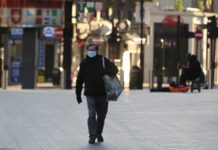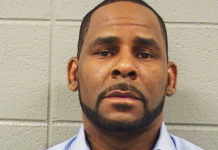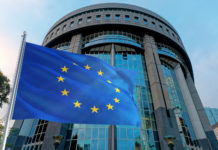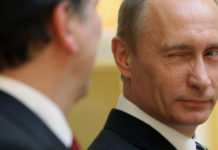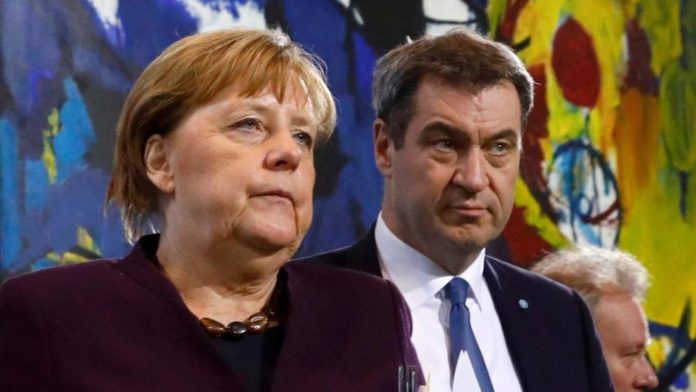
For days there has been a heated debate about when and how Germany can ease the restrictions imposed in the fight against the corona virus
Before the German Chancellor Angela Merkel meets with the Prime Ministers, it is unclear whether the states will find a common line.
Berlin (dpa) – Prior to consultations with Chancellor Angela Merkel on easing restrictions in the corona crisis, NRW Premier Armin Laschet (both CDU) has called for a joint roadmap for the states.
“We need a consensus of the 16 states. Especially in the area of school policy, there must be no going it alone,” Laschet told the German Press Agency in Berlin. Merkel will speak this afternoon in a switching conference with the state premiers.
The North Rhine-Westphalian Minister of Education, Yvonne Gebauer (FDP), had announced her intention to gradually reopen the schools after the Easter holidays. This was her “firm goal”, she said, primarily to make exams possible. One week later, the first day-care children in NRW will probably also be allowed to return to day-care centres, as State Family Minister Joachim Stamp (FDP) suggested. Bavaria’s Minister President Markus Söder (CSU), speaking on ZDF’s “heute-journal”, thereupon rejected a prompt opening of the schools after the Easter holidays.
Already in the morning, Merkel wants to prepare the Bund-Länder switch with the members of the Corona cabinet. Following the discussions with the Minister Presidents, it is planned that the Chancellor will inform the public about the results – presumably together with Söder as Chairman of the Minister Presidents’ Conference and his deputy, the Mayor of Hamburg, Peter Tschentscher (SPD).
Most of the restrictions have already been in place for four weeks. The focus should now also be on the question of when children and young people will be able to return to the daycare centres and schools that have been closed for weeks.
Laschet said, “the proposal of various scientists to immediately return all grades 1 to 10 to the schools is, in the view of the NRW state government, not justifiable”. Priority would be given to those pupils who were preparing for qualifications such as the Abitur. The next steps would then have to be decided jointly in the light of the experience gained. A “clear joint roadmap on the way to a responsible normality” was important.
The Minister President emphasised that “North Rhine-Westphalia has provided ideas and concepts for the federal-state consultations and will now implement what the states decide together with the Chancellor. Distance regulations and protective measures are particularly important in the retail trade, he said. “We have to contain the virus further, more targeted than before”, he demanded.
Söder said on Tuesday evening on ZDF television that he was “very reticent about schools”. He was also skeptical that primary schools should be opened first. “I have a fundamentally different opinion about that.” Söder also distanced himself from a recommendation by the National Academy of Sciences Leopoldina.
“I believe that you can be generous with the final examinations, because the pupils need a degree for their future careers,” Söder said on ARD’s “Tagesthemen”. Protective measures could also be organised much better here. In general, Söder said, politicians would be well advised to listen to the warnings of teachers against opening schools too early. “Less rush, a little more patience and prudence could help everyone.”
Baden-Wuerttemberg wants the schools to gradually resume operations on April 27th at the earliest. Rhineland-Palatinate Premier Malu Dreyer told the newspaper “Rheinische Post”: “We will provide a step-by-step plan when schools start up, so that we can always see how the infection rate develops”.
Thuringia’s head of government Bodo Ramelow (left) advocated, among other things, that when schools are reopened, first of all the age groups that are about to graduate from secondary school this year, or those who will graduate from high school this year, should be considered. He had also expressed the expectation that the retail trade could gradually reopen under certain conditions.
Söder said that there might be some relief in the next two or three weeks, for example in the retail sector, but always combined with clear conditions such as hygiene concepts, distance requirements, upper limits for the number of people per square metre and protective masks. With a view to the retail trade, he demanded “at least one mask requirement, one face mask requirement”. The same applies to local public transport. In response to the “Tagesthemen” question of whether he was in favor of a commandment or a duty to wear masks, the CSU leader said: “We will discuss that. I am already very much in favour of a stricter approach.” Let’s be clear. “If we facilitate, there must be more protection at the same time.”
The German Association of Cities and Towns called for a nationwide concept for gradual easing. “For the day-care centres, for example, it would be unfortunate if 5 to 6-year-olds in one country were to be cared for again soon and 3 to 4-year-olds in a neighbouring country,” said Chief Executive Helmut Dedy to the newspapers of the Funke Media Group.
The Leopoldina had pleaded for a “realistic” timetable back to normality. The scientists recommended that schools be reopened “as soon as possible” – starting with elementary schools and lower and middle schools. But the Leopoldina also named many prerequisites for a return to more normality. In addition, there is a draft of a council of experts appointed by Laschet.
The Robert Koch-Institute, on the other hand, suggested to open schools first again for the higher grades. This would be based on the assumption that young people would be better able to observe distance rules, said RKI President Lothar Wieler.
Foreign Minister Heiko Maas warned that an exit strategy was needed that carefully weighed up all risks. “A look across our borders, where unfortunately in some countries there are new bitter death figures every day, shows Every day that the contact ban is lifted too early can have dramatic consequences for the health of many people”, the SPD politician told the newspaper “Rheinische Post”.
Update (15/04/2020):
Berlin (dpa) – In the fight against the corona virus, the federal government wants to propose to the states that the existing restrictions on contact for citizens be maintained at least until May 3.
This was announced by the German Press Agency after a switching conference between the head of the Chancellor’s Office, Helge Braun (CDU), and the heads of the state chancelleries on Tuesday, as we reported earlier on.



